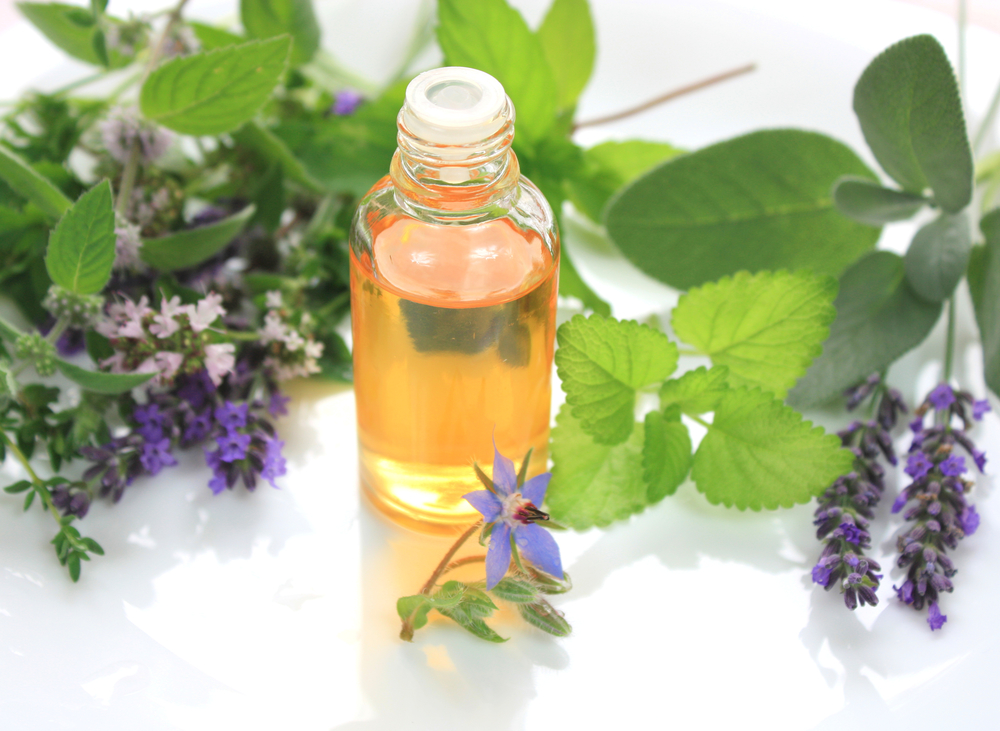If you’ve ever used CBD oil, you’ve gotten more from the product than just cannabidiol (CBD). For multiple reasons, manufacturers include a carrier oil, too. As its name suggests, a carrier oil delivers (or carries) the contents of the active compound. In this case, it’s CBD. In the realm of beauty products, carrier oils dilute essential oils because the essential oil may be too strong on its own.
Carrier oils are important to CBD because they help dissolve the cannabinoid’s molecules so they can be absorbed by the body. Many carrier oils are similar, but they may have differences that could be important to you for various reasons.
For example, most of them are nut-based or plant-based, and you could be allergic to them. Oils that are taken orally may not taste good to you. Reading the label is a smart move—as long as you know what you’re looking for.
This article explains the purpose of carrier oils and the possible side effects. It also describes the six carrier oils you’re likely to see in stores and online, including their advantages and drawbacks.
What is CBD?
Cannabidiol is a chemical constituent of the cannabis Sativa plant species. CBD is found in the hemp plant as well as in marijuana, however, it is more abundant in hemp. As a result, hemp is the plant of choice when it comes to extracting CBD for commercial products like oils and tinctures.
Though marijuana does possess CBD, it contains far more THC, a different cannabinoid. THC is responsible for causing highs.
Key points to note about CBD are that it will not make you high, and it is non-toxic, and you cannot overdose on CBD tinctures, oils, edibles, or anything else for that matter.
Today, there is an enormous number of products containing CBD that can be found online and in various head shops. You might discover CBD in the form of oils, topicals, capsules, e-liquids, patches, suppositories, edibles, and tinctures.
CBD & Wellbeing
CBD is believed to potentially benefit your wellbeing in a holistic manner. Ongoing research is forever unearthing more of the seemingly endless therapeutic potential benefits of CBD. In order to understand how CBD can have such an impact, it’s essential to know the biological system with which it interacts – the endocannabinoid system (ECS).
Made up of several components such as metabolic enzymes, cannabinoid receptors, and endocannabinoids, the ECS is a complex system or biocommunications network. Its goal is to maintain homeostasis (a state of balance in the body). When we consume CBD in any format, it may stimulate the ECS by mimicking our endocannabinoids and helping this system carry out some of its functions and processes.
While CBD does not bind directly to our CB1 or CB2 receptors as THC would, it certainly has an impact on us through its indirect engagement with the ECS.
So, in terms of the potential benefits associated with CBD, here is what the research has told us thus far:
- CBD may have anti-inflammatory properties: Inflammation is a natural and necessary response from your immune system – but sometimes the immune system goes overboard. Studies investigating how CBD interacts with all kinds of inflammation – from the skin (circa 2019) to the bowel (2016)- have invariably concluded that this cannabis derivative is extremely promising for potentially helping to manage inflammation. CBD is believed to exert this effect by interacting with our ECS, some of whose cannabinoid receptors are located around the immune system, which is responsible for activating inflammation.
- CBD is a possible antioxidant: Something that research has repeatedly emphasized is the potential for CBD to affect symptoms of oxidative stress (the imbalance of free radicals in the body) and serve as an antioxidant. This may make CBD beneficial to your skin, heart and neurological health, for example – all of which can suffer as a result of chronic oxidative stress.
- CBD may serve as an analgesic: CBD has been noted both by many scientific and anecdotal reports to have pain-relieving This comes as little surprise when you consider that it has been deemed a potential anti-inflammatory. Inflammatory pain symptoms are not the only type of pain symptoms that CBD may be useful for, however, CBD has also been connected to possible reduced neuropathic pain.
- CBD can potentially relieve nausea: CBD has been observed as a potential antiemetic in research. This cannabis constituent is thought to manipulate the ECS, such that you may feel less nauseous and your urge to vomit could be suppressed.
- CBD can help modulate symptoms of anxiety: There are dozens of studies that attest to CBD’s possible impact on symptoms of anxiety.
- Immunomodulatory: CBD is purported to work with the immune system to potentially help regulate various immune responses that can make us feel under the weather.
CBD & Sleep
One of the main reasons that people use CBD is for its alleged ability to help us sleep. Both anecdotal and scientific reports have cited improvements in sleep when CBD is consumed regularly.
How does CBD do this? It may have an impact on some of the neurochemicals involved in sleep. For instance, adenosine is a neurochemical that is thought to play a significant role in sleep; when adenosine levels rise, that’s when we start to feel more tired.
CBD is purported to potentially increase our adenosine levels, which causes sleepiness. As such, using CBD may potentially contribute to better sleep.
Another neurochemical that CBD may help regulate is that of cortisol. Cortisol is our primary stress hormone, and too much of it can impede a good night’s sleep. Suppose poor sleep is the product of too many things playing on your mind at night. In that case, CBD could help you address this by tackling the anxiety underpinning your insomnia.
Rather than relying solely on CBD, however, it is also vital to help facilitate sleep in every other way that you can. For example, it’s important not to have too much caffeine during the afternoon, as this can still be in your system even hours later, as you’re trying to sleep.
In addition, staring into screens close to bedtime should be avoided, as these screens project blue light, which tricks your brain into thinking it’s daytime. If you’re still struggling to sleep, it may be worth talking to your doctor about the best steps forward, or to examine any possible underlying issues.
Common Carrier Oils
MCT Oil
MCT oil is the most common carrier oil for CBD products. It can be derived from coconut or palm kernel oil, but coconut is the most common source. On labels, it’s sometimes listed as fractionated coconut oil, which means it contains more liquid than solid compared to normal coconut oil, thanks to fatty acids.
Medium-chain triglycerides are a type of fatty acid that your body can quickly absorb because it doesn’t have to break it down via digestion before sending it off to the lymph system. It also absorbs easily through the skin.
Long-chain triglycerides require more digestion time. Short-chain triglycerides are often consumed by gut bacteria before they’ve had time to be absorbed. So MCTs are the most useful.
Pros:
- Quick absorption due to molecular structure
- 90% saturated fat, which also aids absorption
- Light, thin oil
- Almost flavorless
- Doesn’t require chemical processing
- Less expensive than some carrier oils
- Slow to break down and go rancid
Cons:
- Temporary digestive side effects (nausea, gas, diarrhea, vomiting) in some people
- Possible excessive build-up of ketones in the body (dangerous with poorly controlled diabetes)
- Not recommended for people with liver disease
- May interact with cholesterol-lowering statin drugs
[aad_coconut_oil]
Hemp Seed Oil
It may come from the same plant, but hemp seed oil (sometimes called hemp oil) and CBD oil aren’t the same thing. CBD comes from the flower while hemp seed oil comes from the seeds.
The seeds contain fewer beneficial chemicals (cannabinoids and terpenes) than the flower and in much lower concentrations. However, they do contain some hemp phytochemicals that aren’t present in the flowers.
Using hemp seed oil as a carrier oil for CBD may contribute to what’s called the “entourage effect,” which basically means that combining parts of the plant may make each component more effective than it would be alone.
This quality makes hemp seed oil a popular choice for “full-spectrum” products, which contain all of the component chemicals of the hemp plant rather than just CBD.
Pros:
- Rich in omega-3 fatty acids, which may lower inflammation
- Ideal ratio of omega-3 to omega-6 fatty acids
- High antioxidant levels
- Good source of fiber
- Contains magnesium, calcium, iron, and zinc
- Possible entourage effect
Cons:
- Lower solvency than MCT oil, meaning it can’t hold as much CBD
- Higher priced than MCT oil
- Flavor (sometimes described as “sharp” or “herby”) may clash with some palates
- Side effects may include diarrhea, nausea, throat irritation, slow heart rate, high blood pressure
The Other Side of CBD
Adverse effects may occur if the dose is incorrect for your personal condition, or if the CBD has interacted with medication(s) you take and you haven’t consulted with your doctor before mixing them.
Some of the most commonly reported side effects include diarrhea, nausea, lightheadedness, dizziness, drowsiness, fatigue, changes in weight, and changes in appetite.
There are simple measures you can take in order to avoid adverse effects of CBD. You should always start with a very low dose of CBD and monitor how your body responds. Starting with quantities that are too high for you could lead to an unwanted reaction.
Want to know the proper CBD dosage for you try our: Health Surgeon CBD Dosage Calculator
It is recommended giving yourself a fixed dose for a number of weeks before deciding whether or not you want to raise it higher. Doing this gradually means you are less likely to have a reaction. The food standards agency (FSA) recommends taking no more than 70 mg per day, which equates to around 28 drops of 5 mg CBD tincture.
- Do not take CBD to replace any medications you may need to take. Another tip on that score is to check with your doctor to see if you can take CBD supplements alongside your medication. It is pertinent to check this before beginning a CBD regime, as cannabidiol has been known to interact with certain medications.
- Manage your expectations. CBD will not cure, prevent, or treat any condition. Therefore, we urge you to manage your expectations when it comes to CBD usage. In the case of using CBD for sleep, it may take some time before your sleep improves, or it may not be enough on its own to help you with your insomnia. Leading a healthy lifestyle, including a balanced diet and plenty of exercise, will be vital to helping the CBD help you – it cannot do all the work on its own!
- Beware of illegitimate companies and do your research. Unfortunately, the CBD world remains fairly unregulated. This means many companies sometimes get away with selling products that aren’t what they say they are, because there is a lack of regulatory bodies to check the legitimacy of products.
Purium’s pure + premium hemp-derived cannabidiol (CBD) is super potent, containing 1500mg per bottle. Grown in Kentucky or Colorado and without any artificial ingredients, CBD+ combines full spectrum and pure CBD extracts in organic hemp seed oil.









